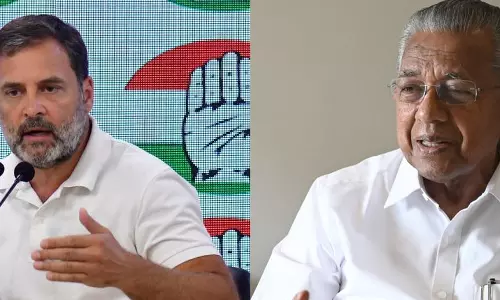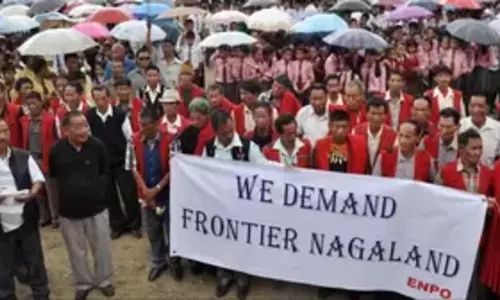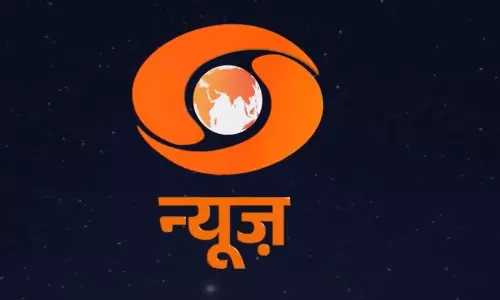
Is Collective identity of religious minorities objectionable?
text_fieldsWayanad is a Lok Sabha constituency in Kerala where Muslim League has a crucial force. With the advent of Congress President Rahul Gandhi as a candidate there, BJP, the protagonist of Congress at the national level, and Congress's main Kerala rival CPM have come out against the impropriety of ties between Congress and League.
BJP's chief minister in Uttar Pradesh, Yogi Adityanath has blamed that Rahul Gandhi is banking on the support of a party that is responsible for the country's partition and holds Pakistan's national flag. And the concern of CPM Polit Bureau member Brinda Karat is about Congress allying with Indian Union Muslim League which colludes such religious fundamentalists as mix religion and politics. In her opinion, through this the claims of Congress about protecting secularism get confusing.
Similar allegations keep coming from the leaders and spokespersons of BJP and CPM. Rahul Gandhi entered the fray in a relatively safe constituency. But over and above defeating him, the opponents of Congress seem to aim at tarnishing the image of the Congress in other parts of the country, by making an issue of the its ties with Muslim League that have been in existence in Kerala for quite some time.
When Yogi Adityanath cautions that Congress has been afflicted with the virus of Muslim League, and if Congress wins that virus will spread all over the country, it is clearly part of an agenda of provoking the majority community by whipping up anti-Pakistan sentiments. And the fake propaganda of portraying the Muslim League flag and Pakistan's national flag as one and the same, points exactly to that motive. Congress and Muslim League leaders have already replied to this allegation. In addition, League's spokespersons have also filed a complaint against Yogi before the Election Commission.
All the same, the reactions on the issue from the side of BJP and CPM, do draw our attention to another aspect of the theme. And that is related to the identity and existence of the largest religious minority of the country left behind in India after independence and partition. Ours is a secular democratic constitution that grants equal rights to all citizens irrespective of caste, religion, language or race, recognizes plurality in its fullest sense, and guarantees to religious minorities freedom of religious belief and a right to maintain their identity.
India is also signatory to the United Nations Charter that upholds the right to existence of religious, linguistic and racial minorities of all countries with their cultural identity. That being so, what is wrong in minority religious, political and cultural groups organizing and conducting themselves in line with the constitution and in a legal, peaceful manner? When pressure is mounting on minorities to merge into the beliefs, traditions and culture of the majority, how jusfitiable would it be to see their efforts to organize themselves for the protection of their constitutonal rights and privileges, as communal and a dangerous mobilization?
No doubt, communalism from whomsoever it may come, is destructive and to be defeated at any cost. In a country where communal polarization had led to partition of the nation, any form of communal trends needs to be wiped off. But in the circumstances in which extreme communalism is hunting religious minorities in the name of majoratian culture, no one can agree with the theory that religious minorities organizing themselves as a community have to be opposed equally. Those who vehemently argue that attempts at communal polarization need to be countered through secular movements, are closing their eyes to the naked realities of the real world.
In the first fifty years after independence, the majority of Muslim minority used to rally behind, and exercised their vote to bring to power, parties claiming to be secular. What happened then is a question that will be answered better by the facts and figures in Sachar Committee Report and the bellicose growth of sangh parivar. The question why the left lost power in Bengal which lasted three and a half decades, is also relevant here. With the future of religious minorities turning a big question mark, their justification to get themselves organized cannot be questioned at least as a means of survival. More so when their organized strength has mostly been alongside secular parties and alliances.











